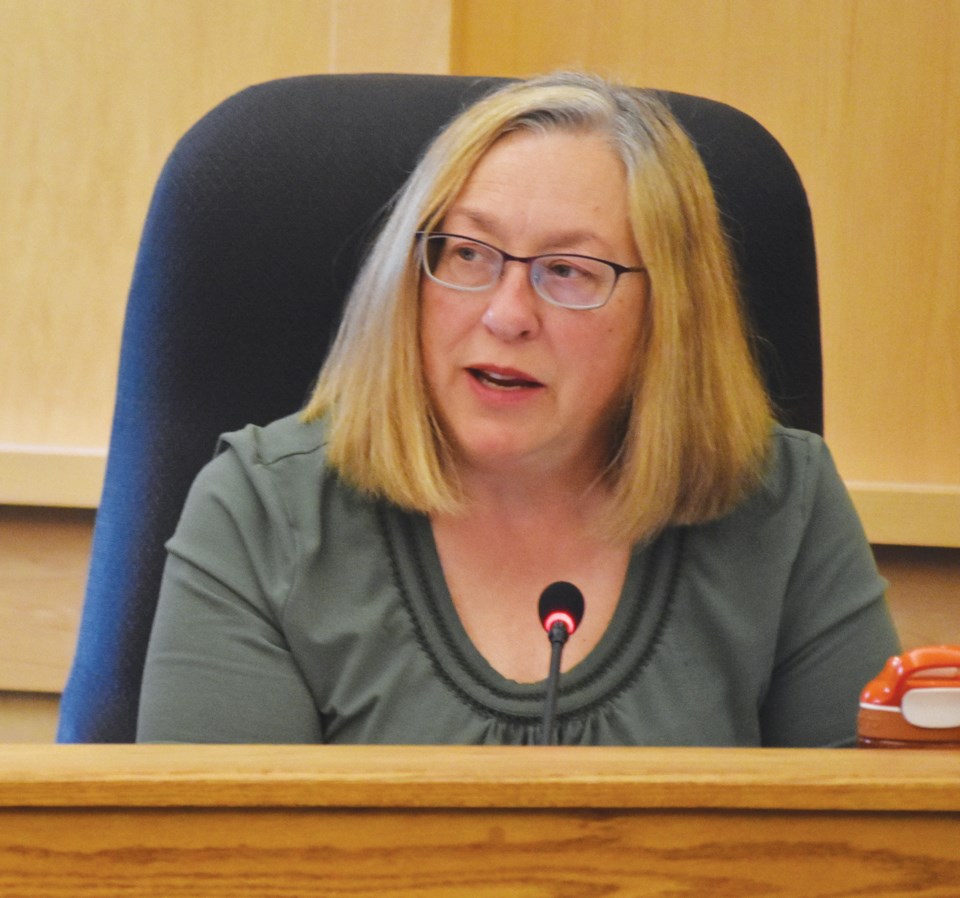As the debate over a supportive housing project on School Road in Gibsons continues, many are looking to Sechelt’s experience with a newly opened supportive housing facility and 24/7 homeless shelter to make their case for or against the Gibsons proposal.
In letters to Gibsons council and posts on social media, opponents of the School Road project have claimed that since the opening of the 40-unit supportive housing facility on Hightide Avenue in the spring, there’s been an increase in police calls that is straining resources, disturbances, open drug dealing and other issues.
Coast Reporter asked Sechelt Mayor Darnelda Siegers to comment on one such post that was purportedly the observations of neighbours of the Hightide development, although it was circulated on social media by a Gibsons resident opposed to the School Road project.
In her written response, Siegers said that with the establishment of permanent services for the homeless, such as the Upper Deck shelter on Wharf Avenue and the Hightide supportive housing development, “the population previously hidden suddenly became visible.”
Siegers said she spoke with RCMP and RainCity Housing, which manages Hightide and the shelter and will manage the Gibsons project if built, about the statements in the post, which she said she does not believe to be true.
“There seems to be a lot of misinformation that is being repeated and becoming accepted as fact,” Siegers said. “Through our discussions at the Community Action Team meetings, we know that drug use, in general, has increased in Sechelt in the last number of years for varying factors. The presence of the shelter or Hightide has no correlation to drug dealing in our community. Many of those who use, buy, and sell drugs are actually members of our community who are not residents of the shelter or Hightide.”
The post also claimed that shelter clients are “openly using drugs, and exchanging drugs” around major downtown businesses, which have become a “base of operations” for drug dealers.
“This cannot be corroborated or confirmed,” Siegers said. “As there has been no identification made, the accusations are groundless, at this point, and meant to inflame controversy and present a slanted view of much needed services being provided to members of our community.”
Here are some of the other claims made in the post Coast Reporter forwarded to Seigers, with her responses in italics.
“The RCMP seem to be overwhelmed – we have seen two to three police cars at the facility almost every day.”
At the request of council, the RCMP have adopted a more proactive approach in downtown Sechelt. That includes increased visibility in the area of the Homeless Shelter and the Hightide Supportive Housing Facility. That would account for much of the increased presence. The RCMP regularly park on the shelter ground and Hightide property to show an increased presence in the community. There has been a slight increase in calls for service in the immediate area but nothing that the RCMP consider unmanageable.
“These are not all residents of the Sunshine Coast – they are being brought here from outside, creating problems for local residents.”
All residents of Hightide are Sunshine Coast residents. There were 100 applications for accommodation at the supportive housing property. Of the 40 spots in the building, 39 were filled by Sechelt residents. All 39 residents were known by referring agencies and have been longtime users of their services. The same is true of the 20 beds in the Homeless Shelter. That these services are being provided to non-residents of the Sunshine Coast is a myth being spread to fit an agenda. At the recent SCRD policing committee meeting, the two reps from VCH Mental Health commented that the majority of people they deal with are current residents or people who have family connections and/or history on the Sunshine Coast, not people who have just showed up here looking for housing.
“The facility was supposed to serve as a place to give those in need a hand up – a step closer to successfully living on their own. Everyone deserves a safe, warm, dry place to live, but many of the residents seem to use it as a place to party, and get high.”
There have not been any noise complaints to the RCMP or to Sechelt bylaw officers. All folks are respecting of the noise curfew and bylaw and are respectful of the building policy and procedures. Both RCMP and Emergency Health Services have indicated that there has been a positive impact regarding call volumes for service involving certain individuals.
“Many of us in the neighbourhood are seniors – we are appalled by the constant yelling, foul language, and constant need to call the police over potential ‘domestic disputes’ unfolding on the street just outside our windows. The whole neighbourhood can hear, and many are very scared.”
These complaints have never been taken directly to RainCity, so they have not had an opportunity to identify those responsible and determine whether or not they are Hightide or shelter residents and/or address the concerns raised. Domestic disputes happen all over the Coast and Hightide has not 'created' domestic disturbances in our community or neighbourhood.



